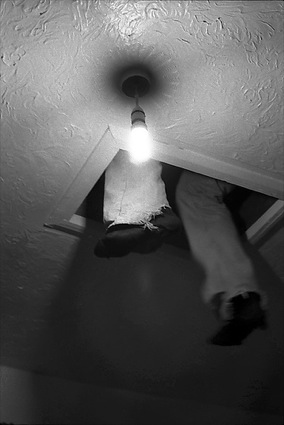MacDonald, speaking of how Jesus responded to his parents after they had lost him in Jerusalem, comes to the conclusion that when Jesus said he was in his “Father’s House”, he concludes that he wasn’t actually talking about the temple.
…the Lord meant to remind them, or rather to make them feel, for they had not yet learned the fact, that He was never away from home, could not be lost, as they had thought Him; that He was in His Father’s house all the time, where no hurt could come to Him.
The world was His home because it was His Father’s house. He was not stranger who did not know His way about in it. He was no lost child, but with His Father all the time.
Here we find one more thing wherein the Lord differs from us: we are not at home in this great universe, our Father’s house. We ought to be, and one day we shall be, but we are not yet. This reveals Jesus more than man, by revealing Him more man than we. We are not complete men, we are not anything near it, and are therefore out of harmony, more or less, with everything in the house of our birth and habitation.
Always struggling to make our home in the world, we have not yet succeeded. We are not at home in it, because we are not at home with the lord of the house, the father of the family.
Hence, until then, the hard struggle, the constant strife we hold with Nature – as we call the things of our Father – a strife invaluable for our development, at the same time manifesting us not yet men enough to be lords of the house built for us to live in.
-George MacDonald, Life Essential: The Hope of the Gospel, ch.3
This is a rather interesting (and even backwards!) take, and another angle I keep running into when reading N.T. Wright and others.
First, the opposite. All growing up, I was taught “the world is not our home”. We are longing to get out of this busted up joint and move on to Heaven, our eternal home. This is an important ingredient if you have an eschatology where the world gets nuked really hard. Jesus had “no place to lay his head”, was not at home here. He just stepped down into our miserable world for a while to save us then floated back up to heaven once the job was done. Oh how happy when we fly away to be with him. Being human is totally the pits.
As some of these studious folks have pointed out though, this is a really incomplete picture. It gives the curse too much credit. It leaves out some important things. The whole earth was created by God and declared “good”. Mankind was made lords over the earth. This IS our home. Always has been. Now the curse corrupted creation, but it is being redeemed.
The Lord saved us (once and for all on the cross), and he is redeeming us even now through sanctification. In John’s Revelation, he speaks about the Jesus returning to live with us on the new earth. Not a ton of details are given, but there is no reason we should assume this is some new planet or ethereal realm. It’s the same really nice one he created for us in the beginning, the one beneath our feet right now.
Wright frequently asserts that when we are redeemed, we become MORE FULLY human. We don’t become less icky human and more angelic. Being human is a good thing. Humanity was cursed by sin, but Jesus took/is taking care of that right now. Slavery is evil because it is DEhumanising. Not because it’s more inline with how man was created.
So here, MacDonald suggests that Jesus was at HOME in the world. It was his own creation after all. He commanded the wind and the waves. He looks at the language of “father’s house” in the Greek and sees that “house” is really the word for stuff or things. In fact, only some translations use “house”. Also, if you think about the whole new covenant, was the physical temple ever that important to Jesus? No.
Actually, reading the rest of the chapter, MacDonald’s observations seem rather incomplete as well. I just have to say I was a bit surprised to find this same idea alive almost 200 years ago. (Perhaps I shouldn’t have been.)


